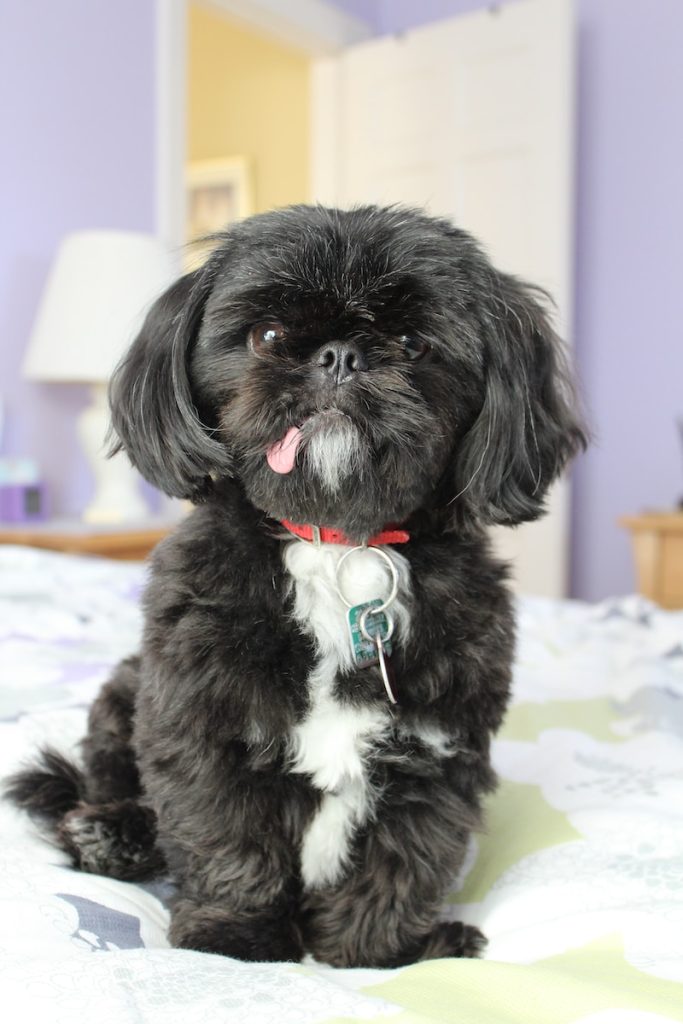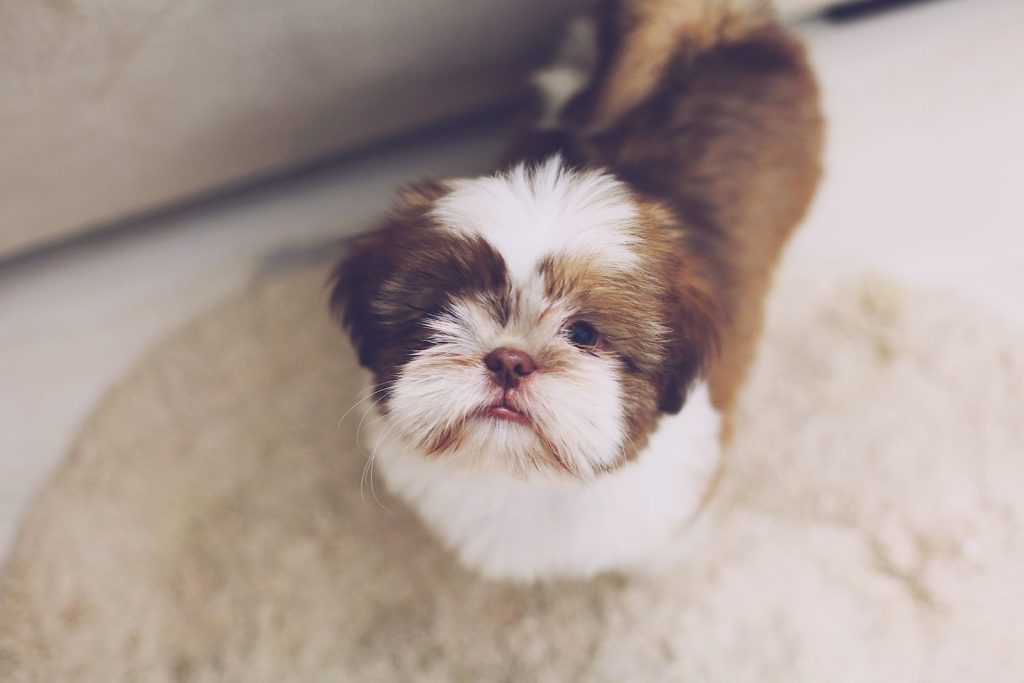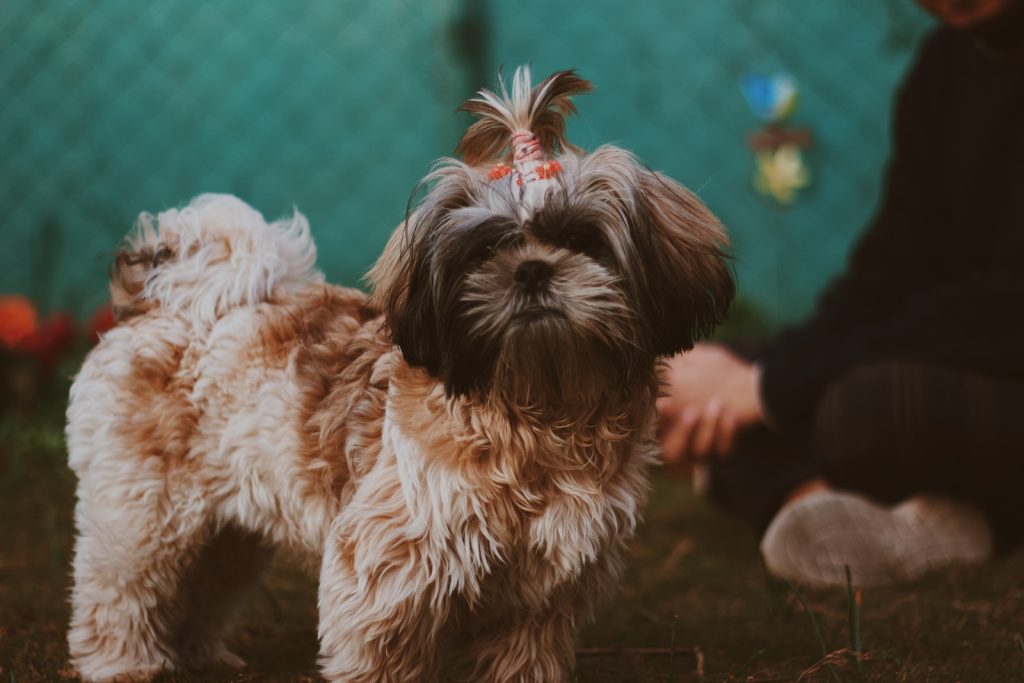The search for the perfect companion can be a daunting task. With so many breeds, it’s essential to research and find a breed that fits your lifestyle and personality.
Among the popular toy breeds, one stands out for its adorable appearance and affectionate nature – the Shih Tzu. But is this breed as lovable as it seems, or is it just a popular fad?
In this article, we will delve into the truth behind the Shih Tzu breed and discover why it has captured the hearts of so many dog lovers worldwide.
As we explore the traits and characteristics of the Shih Tzu, we will discover its physical features, personality traits, and grooming needs. We will also provide tips on training and care to help you better understand this breed and ensure a happy and healthy life for your furry friend.
Whether you’re a first-time dog owner or a seasoned pet parent, the Shih Tzu is a breed that will bring joy and companionship to your life. So, let’s dive in and discover the lovable world of the Shih Tzu breed.
Key Takeaways
- The Shih Tzu is a popular toy breed known for its adorable appearance and affectionate nature.
- They originated in China as companion dogs for royalty and have sturdy body and long, dense, double coat that requires regular grooming.
- Shih Tzus are social dogs that enjoy the company of their owners and other people and require early training and socialization for optimal behavior.
- Regular grooming and care are crucial for ensuring the health and well-being of Shih Tzus, who may be prone to eye, dental, and skin allergies.
Brief Overview
Before we dive into the specifics, let’s take a moment to appreciate the essence of this breed. Shih Tzus are small, sturdy dogs known for their distinct appearance and lively personality. Originating from ancient China, they were treasured by Chinese royalty for centuries. The name “Shih Tzu” translates to “lion dog,” a fitting description of their regal and majestic presence. With their luxurious double coat, short muzzle, and expressive eyes, these dogs exude elegance and charm.
History
The history of this breed is steeped in legend and nobility. They are believed to have originated in Tibet, where Tibetan monks bred them as companion dogs. Later, they made their way to China, where they caught the attention of the Chinese imperial court. The Shih Tzu quickly became a favorite of the Chinese emperors and empresses, receiving lavish care and attention within the palace walls.
Appearance and Physical Characteristics
Size and Proportions
They are small dogs, typically weighing 9 to 16 pounds (4 to 7 kilograms) and standing around 8 to 11 inches (20 to 28 centimeters) tall at the shoulder. Despite their compact size, they possess a solid and well-balanced build. Their bodies are slightly longer than they are tall, with a level topline and a sturdy frame.
Coat and Colors
One of the most distinctive features of the Shih Tzu breed is its luxurious coat. They have a double-layered coat consisting of a soft, dense undercoat and a long, flowing outer coat. The Shih Tzu’s coat comes in various colors and patterns, including solid colors like gold, white, black, and silver and combinations such as black, white, and brindle.
Facial Features
The face of a Shih Tzu is characterized by its unique combination of expressive eyes, a short and broad muzzle, and a well-defined stop. The eyes are large, round, and dark, exuding warmth and intelligence. Their ears are set slightly below the crown of the head and hang down gracefully, framing their adorable faces.
Personality Traits
The personality traits of this toy dog include a warm and friendly expression, conveying a sense of trust and approachability. Shih Tzus are known for their affectionate nature and make great companions for families and individuals. They are typically outgoing and social dogs, enjoying the company of their owners and other people. They thrive on attention and are known to be loyal and devoted to their human companions.
Training methods and socialization techniques are important in shaping the personality of a Shih Tzu. Early training is essential to ensure they become well-behaved and obedient dogs. Positive reinforcement techniques such as treats and praise work well with this breed, as they respond well to rewards and encouragement.
Socialization is also important to help them become comfortable around other pets and people, reducing the likelihood of aggression or fear-based behaviors. By providing a loving and nurturing environment and utilizing proper training and socialization techniques, a Shih Tzu can become a well-rounded and happy companion.
Grooming Needs: Maintaining Elegance
The Shih Tzu’s beautiful coat requires regular grooming to keep it in optimal condition. Here are some essential grooming tasks and tips to ensure your Shih Tzu looks and feels their best.
Brushing and Combing
Due to their long and dense coat, Shih Tzus need daily brushing and combing to prevent matting and tangles. A combination of a slicker brush and a wide-toothed comb is recommended to remove loose hair and keep the coat free from knots. Regular brushing also helps distribute natural oils, keeping the coat healthy and shiny.
Bathing and Drying
Shih Tzus should be bathed regularly, typically once every three to four weeks, using a mild dog shampoo. It’s important to be gentle and avoid getting water into their ears and eyes. After bathing, thorough drying is crucial, as their dense coat can take a while to dry naturally. A blow dryer on a low heat setting can speed up the process.
Facial Care
The facial area of a Shih Tzu requires special attention. Their eyes should be regularly cleaned with a damp cloth or specialized dog eye wipes to prevent tear staining and remove debris. Additionally, the hair around the eyes must be carefully trimmed to prevent irritation and maintain clear vision.
Coat Trimming and Styling
To keep your pup looking neat and stylish, occasional coat trimming is necessary. Many owners prefer to have their Shih Tzus’ coats professionally groomed every four to six weeks. Trimming includes shaping the coat, tidying up the feet, and maintaining a clean and manageable length.
Dental Care
Like all dogs, this breed needs regular dental care to maintain good oral hygiene. Daily teeth brushing with dog-friendly toothpaste is recommended, along with routine dental check-ups. Appropriate dental chews and toys can also contribute to healthy teeth and gums.
Health Considerations: Promoting Well-being
While Shih Tzus are generally healthy dogs, they may be prone to certain health conditions. Awareness of these potential issues can help you proactively ensure your pup’s well-being.
Brachycephalic Syndrome
Due to their short muzzle and flat face, this breed is considered brachycephalic. This conformational trait can lead to respiratory difficulties and overheating. It’s important to provide a cool and well-ventilated environment, avoid excessive exercise in hot weather, and be mindful of signs of distress such as excessive panting or difficulty breathing.
Eye Problems
They are susceptible to various eye problems, including progressive retinal atrophy (PRA), cataracts, and corneal ulcers. Regular eye examinations by a veterinarian are crucial to detect and address any potential issues early on. Keeping the eye area clean and free from irritation can also help prevent certain eye problems.
Dental Issues
The structure of a Shih Tzu’s mouth and jaw can make them prone to dental problems, including tooth decay, gum disease, and tooth loss. Establishing a regular dental care routine and providing appropriate chew toys can help maintain good oral health.
Patellar Luxation
Patellar luxation, also known as “slipped kneecap,” is where the kneecap temporarily moves out of its normal position. Shih Tzus can be predisposed to this condition, which may cause pain, lameness, and difficulty walking. If you notice any signs of lameness or mobility issues, consult your veterinarian for an evaluation.
Allergies and Skin Sensitivities
They may be prone to allergies and skin sensitivities, resulting in itching, redness, and skin infections. Identifying and avoiding potential allergens, such as certain foods or environmental factors, can help alleviate these issues. Regular grooming and maintaining a clean coat also contribute to skin health.
Obesity
As with many small dog breeds, this breed can be prone to obesity if not provided with a balanced diet and regular exercise. Obesity can lead to various health problems, including joint issues, heart disease, and decreased overall quality of life. Monitoring your Shih Tzu’s weight, providing a nutritious diet, and engaging in daily exercise is essential for maintaining their health and well-being.
Training and Socialization
Training and socialization are vital to raising a well-behaved and happy Shih Tzu. These intelligent dogs thrive on positive reinforcement and gentle guidance. Here are some tips to help you effectively train and socialize your Shih Tzu.
Start Early
Begin training and socialization as early as possible, ideally when your Shih Tzu is a puppy. Early exposure to various environments, people, and other animals helps build their confidence and prevents behavioral issues later in life.
Positive Reinforcement
Shih Tzus respond best to positive reinforcement techniques, such as praise, treats, and rewards. Use these rewards to reinforce desired behaviors, such as sitting, staying, and walking on a leash. Avoid harsh punishments or negative reinforcement, as it can be counterproductive and damage the trust between you and your Shih Tzu.
Basic Commands
A well-trained Shih Tzu must teach basic commands like sit, stay, come, and down. Break down each command into small, manageable steps, and be patient and consistent in your training sessions. Keep training sessions short and engaging to maintain your Shih Tzu focus.
Leash Training
Proper leash training is crucial for your pup’s safety and the enjoyment of walks. Start by introducing your puppy to the leash positively and gradually, rewarding them for walking calmly beside you. Your Shih Tzu will become comfortable and well-behaved on walks with time and practice.
Socialization
Expose your pup to various people, dogs, and environments to promote socialization skills. Arrange controlled playdates with well-behaved dogs, take them to dog-friendly parks, and invite guests to your home. Positive experiences in different situations will help your Shih Tzu develop into a confident and friendly companion.
Consistency and Patience
Consistency and patience are key when training a Shih Tzu. They are intelligent dogs with unique personalities, and training progress may vary. Stay consistent with your commands, expectations, and positive reinforcement, and be patient as your Shih Tzu learns and grows.
Frequently Asked Questions (FAQs)
Are Shih Tzus good with children?
They can make wonderful companions for children. However, it’s important to supervise interactions between young children and dogs to ensure safety and teach proper handling and respect for the dog.
Do Shih Tzus shed a lot?
They have hair rather than fur, which means they shed minimally. However, their long hair requires regular grooming to prevent tangles and keep it in optimal condition.
Are Shih Tzus easy to train?
They are generally intelligent and eager to please, but they can have a stubborn streak. With positive reinforcement techniques and consistent training, they can be trained successfully.
Do Shih Tzus bark a lot?
This breed has a tendency to bark, as they are alert and protective by nature. Early socialization and positive training can help manage and minimize excessive barking.
Are Shih Tzus suitable for apartment living?
Yes, they can adapt well to apartment living. They are small in size and require moderate exercise, making them suitable for indoor environments. Regular walks and playtime are still important to keep them mentally and physically stimulated.
Do Shih Tzus get along with other pets?
They can get along well with other pets, including dogs and cats, especially when properly socialized from a young age. However, each individual Shih Tzu may have their own preferences and temperament, so introductions should be done gradually and under supervision.
Conclusion
In conclusion, the Shih Tzu breed offers a delightful companionship filled with elegance, affection, and loyalty. Their rich history, distinctive appearance, and lively personality make them a beloved choice for dog enthusiasts worldwide. By understanding their unique needs, providing proper care, and nurturing their training and socialization, you can forge a deep and fulfilling bond with your Shih Tzu. Embrace the joy and love that the Shih Tzu breed brings, and enjoy the countless cherished moments together.
In order to help stray and unwanted dogs in Mexico find their forever homes in Canada and the US, Bone Voyage Dog Rescue was founded. If you are fervently committed to making this happen. They work hard to match these dogs with loving families who value them and provide them with a secure haven.
The world will benefit from your involvement with Bone Voyage Dog Rescue. By volunteering your time, offering foster care, or making a donation, you can improve the quality of life for these deserving animals.



